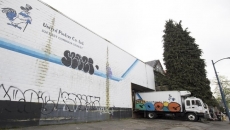The auditor general's office is narrowing its focus for an audit of key spending the Liberals have rolled out to cushion the economic blow from COVID-19, MPs were told as the government expanded a loan program to address concerns from small businesses left out of the aid.
Karen Hogan, the nominee to be Canada's next auditor general, said the focus of the COVID-19 audit will be on how prepared federal officials were for a pandemic, and she wants to cast a critical eye on the federal response that will provide the most value for Canadians and parliamentarians.
She acknowledged the potential for fraud in some emergency aid programs rushed out over the past few weeks, which may expand the scope of audit work that the office is trying to manage with employees working remotely and limited budget resources.
The office has delayed multiple reviews of federal programs to look at the Liberals' $187-billion infrastructure program and now $151.7 billion in pandemic-related aid, plus tens of billions more in loans and tax deferrals.
Hogan said other work might have to fall by the wayside if the auditor general's office can't get millions more in funding.
MPs on the public accounts committee have been told the current need is about $10.8 million. The office has an annual budget of about $90 million.
"We will do our best," Hogan told MPs vetting her candidacy, "and I commit to getting information to Parliament as quickly as we can so that we can begin to see if there are any lessons learned or changes that we can make to better prepare ourselves and the government should we have to go through (a COVID-19-like event) again."
At almost the same moment as Hogan was testifying, the Liberals made changes to expand a small-business loan program after weeks of criticism of its design.
The Canada Emergency Business Account provides interest-free loans of $40,000 for eligible small businesses to cover ongoing costs like rent and utilities, with the possibility of forgiving one-quarter of the amount if the balance is paid off by the end of 2022.
The program has lent out $24 billion, but had, until now, left out companies that couldn't show they had traditional payrolls, such as family-run businesses that pay themselves in dividends and companies that employ only contractors.
In announcing the change, Prime Minister Justin Trudeau said the government was working on ways to provide loans to business owners and entrepreneurs who use a personal, rather than business account, or haven't yet filed a tax return.
The Canadian Federation of Independent Business said it was critical for the Liberals to quickly roll out the expanded loan program because some excluded companies have gone two months with little help.
The group, which represents small businesses nationwide, called for more changes to help companies hurting from the pandemic, including expanding the forgivable portion of the loan.
"With many provinces now looking towards reopening their economies, small businesses will need ongoing support to get through the months ahead," CFIB president Dan Kelly said in a statement. Customers might not flood back even though businesses' costs go back up again.
NDP small business critic Gord Johns called it good news that some of the smallest and hardest hit businesses would finally get some help.
"But we are worried that this good news has come too late for many small businesses who were forced to close their doors permanently while they waited and waited for the government to finally step up," he said.






